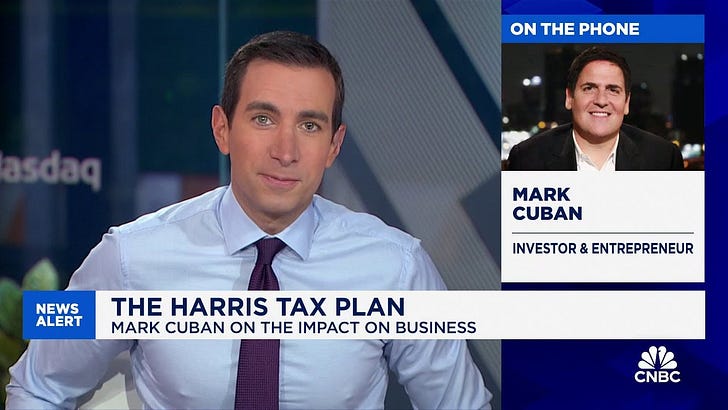Kamala Harris Proposes 28% Capital Gains Tax
Proposal increases long-term capital gains tax from 20 to 28% for high tax bracket individuals
Kamala Harris has proposed increasing the long-term capital gains tax rate for high earners to 28% from the current 20%.
Let’s examine her proposal. Those in the top income tax bracket pay a 20% tax on long-term capital gains; Harris proposes increasing that to 28% for those with incomes over $1 million annually. Harris states that raising the capital gains tax would encourage more startups and increase the number of small businesses, thereby offering economic growth for the country. It is important to note that taxpayers with incomes of $1 million or more paid approximately 27% of federal income taxes, even though they only make up .3% of all income tax filers (according to the IRS).
Harris also wants to increase the corporate income tax from 21% to 28%, hoping to add to the coffers of the U.S. Treasury. What is not explained to the public when increasing corporate taxes is that it will increase the price people pay at the register. After all, if a corporation has to pay more in taxes, it will either work to shelter its income from the tax increase and/or pass that increase on to the consumer.
Harris also supports an unconstitutional 25% minimum tax on households with over $100 million in net worth, including taxing unrealized capital gains. While this sounds like a popular “stick it to the rich” proposal—in Harris’ words, having them pay their fair share—is it a good idea? When you tax gains that have not been realized (i.e., the asset hasn't been sold), individuals might not have the cash on-hand to pay these taxes. This could force them to sell assets, potentially at a loss if the market value drops, to cover tax liabilities. While there are other problems with such a proposal, the valuation changes that happen with one’s assets can be dramatic; thereby, when assets go down in value, will those affected be given large tax deductions?



